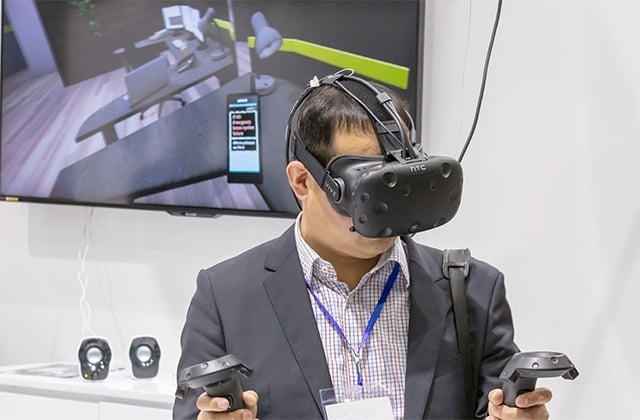Virtual reality games aiding deaf children in the UK to understand speech
2 min read
Researchers have discovered that exposing children to computer games can enhance their ability to localize sounds.
Scientists have enlisted an unconventional ally in their endeavors to assist children in overcoming profound deafness. They are employing computer games to enhance the children’s capacity to localize sounds and comprehend speech.
The initiative, dubbed Bears – representing Both Ears – targets youngsters who have undergone bilateral cochlear implants due to being born with limited or no hearing.
“These children are profoundly deaf,” noted audio engineer Lorenzo Picinali, a project scientist from Imperial College London. “They require significant interventions to restore their hearing, and we’ve found that computer games can greatly enhance these efforts.”
In one game, players, donning virtual reality headsets, manage a food stall and earn points for completing orders. The pace intensifies as players receive increasingly complex requests from animated characters, launched at them from various directions at accelerating speeds. Simultaneously, background noises amplify and become more perplexing. “It’s quite challenging, but the game enhances a child’s ability to localize sound, which in turn aids their comprehension of speech,” Picinali explained.
Through the utilization of computer games, we can assist individuals in enhancing their ability to localize sound, thus facilitating their understanding of speech,” Picinali elaborated. He noted that various factors influence how individuals perceive sounds, such as the size of their head or the shape of their ears.
Imperial College has also developed other innovations, including a computer game where children aim at targets that progressively diminish in intensity until they can only be pinpointed through acoustic cues. Another game requires players to utilize differences in pitch to target sound-emitting objects.
“The pivotal aspect is that children with implants actively participated in designing these games,” Picinali emphasized. “They have played an integral role in the project’s development from its inception.”
Unlike hearing aids, which simply amplify sounds and therefore offer limited benefit to profoundly deaf children, cochlear implants – surgically placed in the skull behind the ears – convert airborne vibrations into electrical signals. These signals are then transmitted to the brain, where they are perceived as sound.
In the UK, there are approximately 6,500 children who are profoundly deaf and rely on cochlear implants as their sole prospect for hearing restoration. With the assistance of the comprehensive clinical trials unit at University College London, the project, led by Debi Vickers at Cambridge University and Dan Jiang at Guy’s and St Thomas’ Hospital in London, aims to enlist over 300 youngsters with hearing impairments and is projected to conclude within approximately 18 months.
It is anticipated that the outcome of this endeavor will not only benefit children with cochlear implants but also potentially revolutionize the hearing capabilities of all deaf children in the UK, totaling around 50,000.
“There are various factors that can lead to severe deafness in children, ranging from genetic predispositions to accidents and infections,” remarked Katarina Poole, another member of the Imperial team. “This initiative has the potential to significantly enhance the lives of numerous children.



